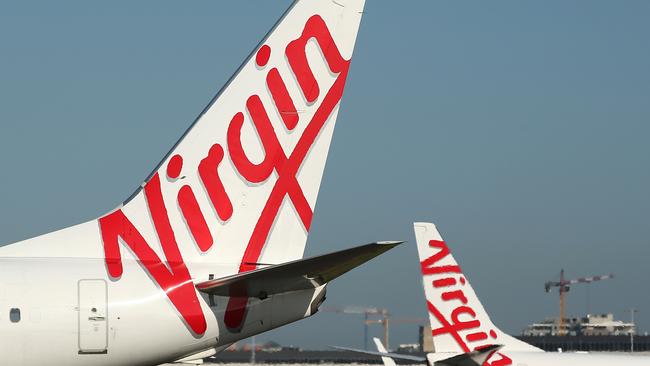’Risky’ airline bonds as safe as bank hybrids when all things considered
Fixed-income investors look at companies in a very different light to share investors.

The airline business is inherently risky. Oil prices, currency fluctuations, a commodity-like service and the threat of government-owned airlines with deep pockets waging price wars are just a few of the risks involved.
But did you know that global credit rating agencies rate the risk of Qantas bonds on a similar pegging to banks — in other words, the senior unsecured bonds from the airline and hybrids from major banks are regarded as having similar levels of perceived risk?
That probably comes as a surprise, so I thought it might be useful to compare the two securities.
The banking industry is nowhere near as risky as the airline industry. Banks take deposits and lend funds, usually taking security in case the borrower defaults.
Australian banks are overseen by the Australian Prudential Regulation Authority (APRA) and must adhere to minimum capital requirements to help protect the institution and the stability of the financial system. Despite the higher risk of the airline industry, Australia — in common with many countries — is seen to need a national carrier.
Even though Qantas is independently owned, it is as close as we’ve got to a national airline. In the very worst case scenario — and that might be right now — I think the government would find some way to assist if needed. So while there is no government guarantee in place and bond holders could be wiped out in a liquidation scenario, in my mind, the need to have a national carrier adds comfort.
Qantas’s senior unsecured bonds are issued with a known maturity date and set interest payment dates that cannot be deferred or missed. Failure to make interest payments or return $100 face value at maturity would be a default event and may cause the airline to go into administration or wind-up.
In contrast, distributions on the bank hybrids can be missed altogether and while there is usually an optional conversion date, which is the expected maturity date (and a further mandatory conversion date if the optional date is missed), both are subject to meeting certain conditions.
If conditions are not met, the hybrids remain outstanding and investors may need to sell the hybrids to recoup capital.
No matter if you own the bonds or the hybrids, it’s worth considering the value of the equity and other subordinated investments that sit lower in the company’s capital structure that have to be wiped out before your investment would incur any losses.
For both Qantas bond holders and major bank hybrid investors, this is a substantial figure.
Qantas has a bond due to mature in May 2022, with a current yield to maturity based on ASX-listed XTB of 3.4 per cent, while CBA and ANZ have hybrids with a first optional call date of February 2022 and March 2022 and trading margins of 3.7 and 3.8 per cent, respectively. The bond offers a lower yield but this is from a retail, ASX-listed opportunity.
Investors that qualify and can invest direct in the over-the-counter market would be likely to achieve higher yields.
The longest term to maturity for a hybrid is the CBA’s CBAPI due in April 2027, and its current trading margin is 3.9 per cent, while the longest dated Qantas XTB due in November 2029 has a yield to maturity of 4.5 per cent per annum. Again, I’d expect investors would be able to achieve better yields if they can access the wholesale market.
Qantas is subject to elevated industry risk and investors would take comfort from the senior unsecured bond’s position in the capital structure, while the banks operate in a much lower risk industry and take comfort from APRA’s oversight and the risk is more in the structure of the subordinated hybrid security.
Both investments would have had liquidity issues in times of stress, perhaps Qantas more so, but this is another factor you need to take into account when investing in higher risk securities. The yield is there as compensation for potential lack of liquidity.
For all the dedicated hybrid investors, perhaps it’s worth considering bonds for diversification, known income and expected $100 face value payment at maturity.
elizabeth@moranconsults.com






Virgin Australia’s administration is a recent low point for Australian financial markets, with mums and dads being caught holding corporate bonds that may prove worthless.